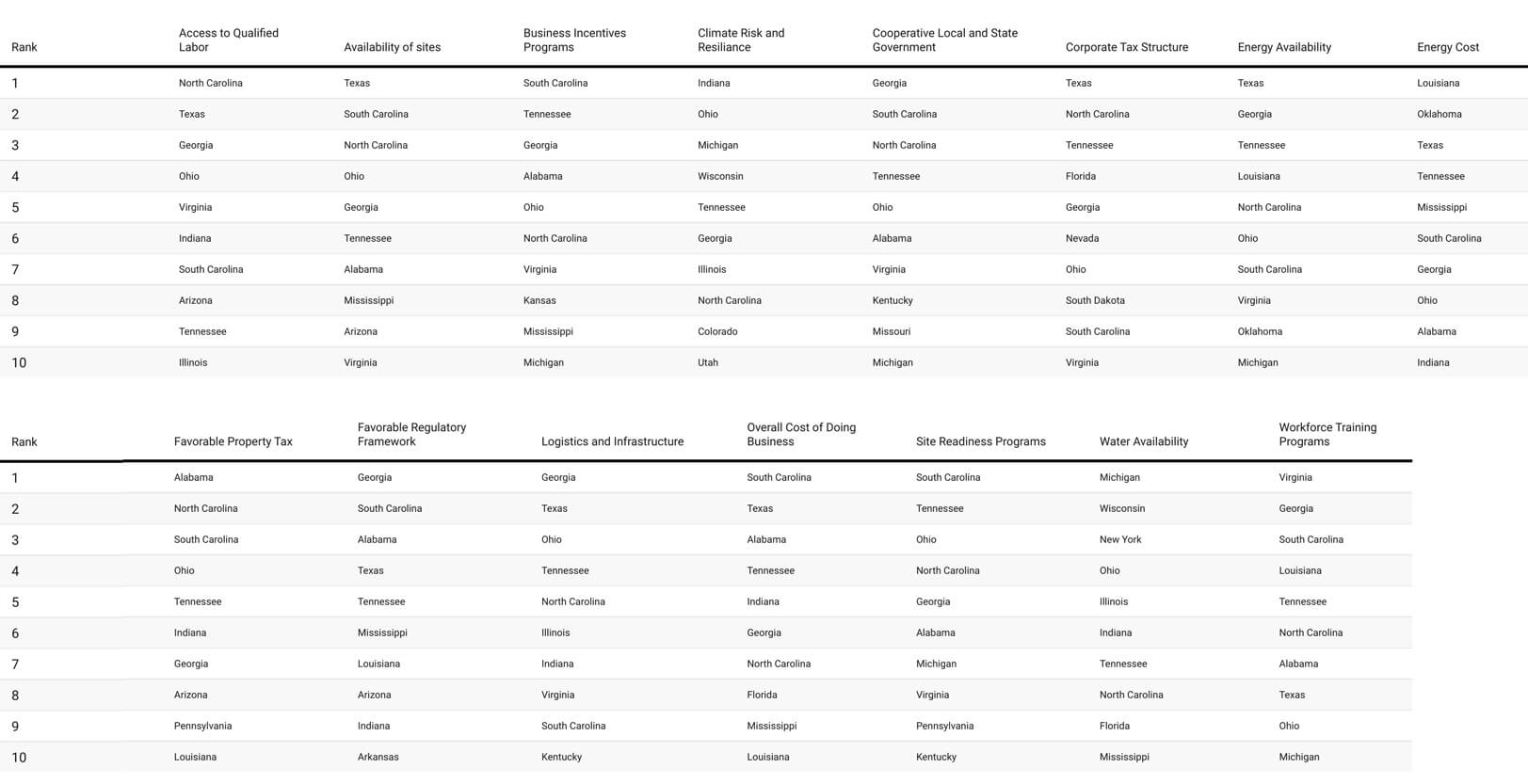
Area Development Magazine | Alabama Ranked #8 Overall in 2025’s Top States for Business
According to Area Development Magazine, Alabama ranked No. 8 overall, scoring especially high in categories that are crucial to attracting investment and fueling job growth. The state earned the magazine’s top ranking for Favorable Property Tax and placed in the top 10 in eight additional categories, including Overall Cost of Doing Business (No. 3).
The annual “Area Development” survey evaluates how well states perform across key economic development factors such as tax structure, incentives, workforce readiness, and site availability.
Alabama ranked:
No. 1 — Favorable Property Tax
No. 3 — Overall Cost of Doing Business
No. 3 — Favorable Regulatory Framework
No. 4 — Business Incentives Programs
No. 6 — Cooperative Local and State Government
No. 6 — Site Readiness Programs No. 7 — Workforce Training Programs
No. 7 — Availability of Sites
No. 9 — Energy Cost
While Alabama is a leader in Business Tax Incentive Programs, alongside South Carolina, Tennessee, Georgia and Ohio – consultants do caution that even generous tax incentive programs can’t make up for any weak fundamentals or slow execution. According to the article, “Executives are looking for regions that can offer clarity on taxes, labor policy, and energy regulation over the long term. Political and administrative whiplash can stall or even derail capital planning.”
What to watch for going into 2026?
The consultants behind this year’s rankings emphasized that how a state performs on speed, certainty and alignment now matters more than what it offers on paper. States that are winning today are those with development-ready sites, transparent permitting pathways, reliable energy infrastructure, and customizable workforce programs that align closely with private-sector timelines. Taken together, these insights suggest that 2026 will reward states that are not only proactive, but precise. No longer is it enough to be broadly “business-friendly.” The new mandate is alignment - across utilities, workforce systems, permitting authorities and regional partners. States that can execute consistently across these domains, and tell that story clearly, will define the next generation of winning locations.
